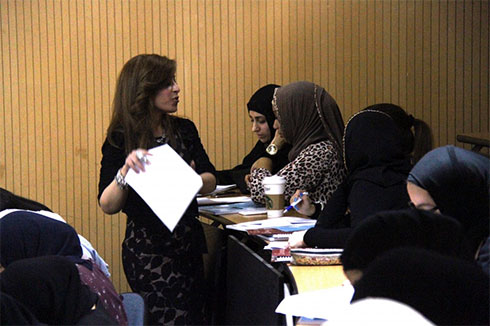
There have been a lot of “legal” changes in Kuwait in the past year, and mostly for the positive. But, the law in Kuwait is not always accessible in English to the large number of foreigners in the country. Therefore there are many topics which I believe would be beneficial to my readers, but I never know where to start, which is why I have decided to start right from the beginning, to the inception of law.
I will try to explain how law is born, in a simple understandable form to all humans, because that is how the law is supposed to be (so the lawyers reading this, I apologize for not using your exclusive lingo!!)
Kuwait is unique in the region being one if the first countries to have a democratic legal system. The system has not changed since it came into place in 1962, and therefore because of democracy, decision making needs to go through a process of steps before it can become “law”, unlike other countries. (An example of this that makes me very proud is that Kuwait is the first country in the GCC that has a law for the rights of domestic workers, it’s brand new too!)
The steps for a law to become a law are as follows:
1) a drat law is suggested by a parliament member or by the government
2) draft law goes to a committee in the parliament (there’s different committees responsible for different things like “education” “health” and so on)
3) committee drafts the law and approves
4) the law is discussed in a session (those for and those against get to speak with equal love)
5) the parliament vote for the law
6) the Amir approves and ratifies the law
7) if the Amir doesn’t approve a law, the parliament can reintroduce the law for voting
8) printed in the daily newspaper (https://kuwaitalyawm.media.gov.kw/)
9) wait a period of time before the law becomes a Law
So when you hear absurd things in the news like a parliament member has suggested “no more yoga in Kuwait, cause people are bending in front of each other” or “men can’t wear the color pink” or “Kuwaitis get 3 day weekends, while expats work 25 hours a day”, please understand it is not law and just a suggestion by a parliament member that a lot of people voted for. Also please understand that the Kuwaiti constitution gives the people living in Kuwait a lot of rights (and obligations) and no parliament or ministry can take away those rights. They are the guidelines for any new law.
With that said, it is very important to know who you are voting for during elections, and a good way to do that is through the non-biased www.raqib50.com, a website that allows you to track different parliament members in Kuwait, current and previous, track their attendance, see what they have proposed and their work in their committees. I hope that was helpful, the media isn’t always positive and can really influence the way we perceive the country even though a lot of positive changes are right in front of us.
Feel free to email me [email protected] with any legal questions. I do not have the capacity to answer everyone for free (but I try), and I am happy to announce that I am currently working with a great team and therefore we are able to reply back to all emails with a reasonable time frame.
Post by Fajer Ahmed – Legal Counsel
The legal opinions expressed in this post are those of the author Fajer. Opinions expressed by Mark or any other writer on mark248am1.wpenginepowered.com are those of the individual’s and in no way reflect Fajer’s opinion.















